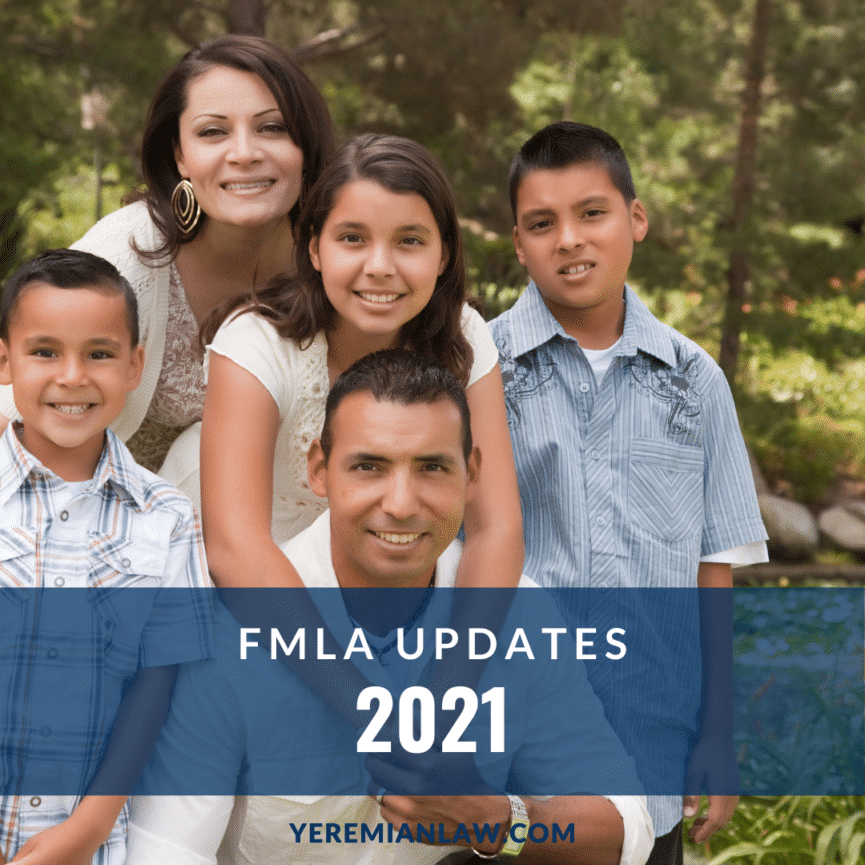The Family and Medical Leave Act, or FMLA, is a bit of a living document – and these are the changes you need to know about this year.
FMLA Updates for 2021
As of 2021, a handful of changes to FMLA have come from the California state legislature and federal agencies. However, some other changes have come into effect through case law; that means a court has ruled on a dispute, and the ruling clarifies some of the FMLA’s rules.
Some of the FMLA updates for 2021 include:
- The definition of “willfulness”
- The Military Assist claim
- New Parent Leave Act repealed and revised
- California Family Rights Act expanded to include more private employers
Here’s a closer look at each.
Related: What is FMLA?
The Definition of “Willfulness” under the FMLA
The Ninth Circuit Court adopted a definition for the term willfulness when it comes to Family and Medical Leave Act claims; the original FMLA did not provide a definition. The proper definition is the same as the one used in the Fair Labor Standards Act, or FLSA, which makes it clear when there is a willful violation of the law.
Under the FMLA, when an employer doesn’t commit a willful violation of the law, there’s a two-year statute of limitations on claims. When there is a willful violation of the law, a three-year statute of limitations applies. The definition of willfulness can now play an important role in employment lawsuits all over California.
Related: 5 common FMLA myths most people believe
The Military Assist Claim
A new type of claim called “Military Assist” is now part of FMLA. This expands paid family leave, which will be helpful to numerous California families. You can make a Military Assist claim if your spouse, registered domestic partner, parent or child has been deployed to a foreign country – and the same policies for applying for FMLA leave still apply.
New Parent Leave Act Repealed and Revised
State Bill 1383 repealed the New Parent Leave Act. However, although the NPLA is no longer in effect, the California Family Rights Act is now expanded to make up for the provisions in the NPLA.
Related: What is paid parental leave?
California Family Rights Act Expanded to Include More Private Employers
The California Family Rights Act has expanded to include private employers with five or more employees. (It used to be private employers with at least 50 employees within 75 miles of the employee’s worksite.)
Additionally, you can take CFRA leave for all the same reasons and if you have “a qualifying exigency related to the covered active duty or call to covered active duty of an employee’s spouse, domestic partner, child or parent in the Armed Forces of the United States, as specified in Section 3302.2 of the Unemployment Insurance Code.”
Under this expansion, employees can take care of additional family members by taking leave under the California Family Rights Act, including adult children, children of domestic partners, grandparents, grandchildren and siblings.
Related: How to take unpaid leave in California
When two parents of one child work for the same employer, each parent is now specifically entitled to up to 12 weeks of leave. Employees can’t be required to split the full 12 weeks between themselves like they could before. Also, the exception to the reinstatement of rights for high-paid employees has been eliminated.
Finally, the CFRA has been expanded to include a mediation program offered by the Department of Fair Employment and Housing, or DFEH, for smaller employers – those that have between five and 19 employees – to resolve disputes over CFRA leave before an employee can file a court case. This is a temporary change, though; it’s only supposed to last until January 1, 2024.
Related: What rights do employees have in California?
Do You Need to Talk to an Attorney About These FMLA Updates for 2021?
If you believe your employer is violating the Family and Medical Leave Act, the California Family Rights Act, or another employment law that applies to you, we’ll be happy to evaluate your situation and answer your questions. Call us at 818-230-8380 to schedule a free consultation with a Los Angeles and Glendale employment lawyer now.






